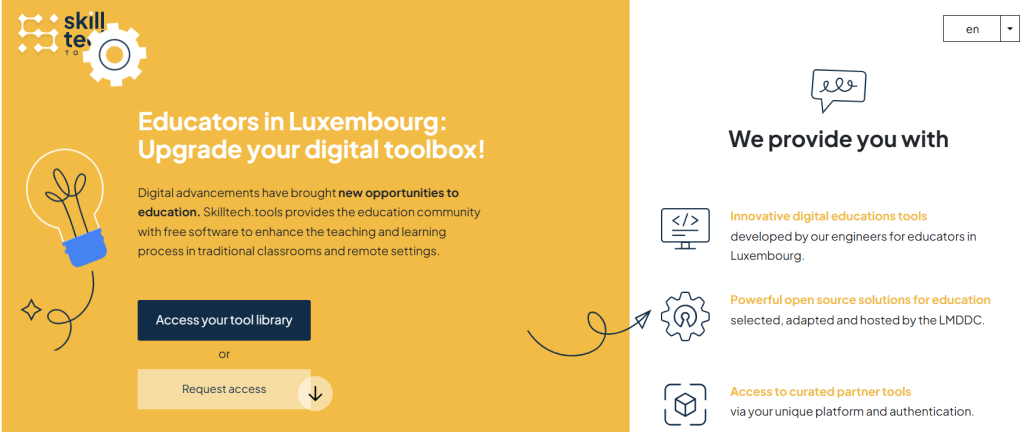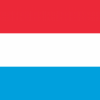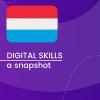Luxembourg Media & Digital Design Centre (LMDDC)
Created in December 2020, the Luxembourg Media & Digital Design Centre (LMDDC) is a public innovation centre founded by the Ministry of National Education, the Ministry of Higher Education and Research and the Luxembourg Institute of Science and Technology (LIST). Its mission is to support the digital transformation of education and training in Luxembourg, and promoting the development and adoption of innovative educational technologies. In a very short time, this structure has established itself as a key player in digital learning, both at national and European level.
Background and context
The LMDDC functions as an agile public structure, composed of a small multidisciplinary team (2 - 15 people) that combines expertise in pedagogical engineering, technological development, research and project management. Its model is based on a balance between the provision of public services and financial autonomy. In addition to the free services offered to teachers, trainers and public institutions, the centre has a commercial studio called Skilltech Studio which offers tailor-made services for private actors. This hybrid model ensures the economic sustainability of the centre while maintaining a strong mission of general interest.
Concrete tools for digital skills
In particular, the LMDDC developed the skilltech.tools platform, which was publicly launched in 2024. This free platform offers resources, guides and digital tools for teachers and trainers in Luxembourg. In its first month, it had more than 100 users – a significant figure for a specialised platform at national level. It testifies to the Centre’s ability to design accessible and relevant tools.

Why is this a good practice?
Active presence in European and international projects
LMDDC's outreach transcends national borders, having been involved in more than 20 European projects and networks in 2024, including the Interreg ECHT project launched in early 2024. LMDD is also a member of the EdTech Consortium, a global alliance for edtech standards. In addition, the Centre’s experts participate in two working groups of the European Commission, via the EU Digital Education Hub, thus making a strategic contribution to European digital education policies. This involvement positions the LMDDC as a recognised hub of competence and expertise.
A dynamic of continuous innovation
The LMDDC is also distinguished by its commitment to the development of innovative digital tools. He recently designed a PrivateGPT-based chatbot for educational assistance, as well as a cybersecurity educational game called Hackenator.lu, aimed at raising young people’s awareness of the challenges of digital security. These tools are designed and tested in collaboration with end users (teachers, students), using a co-creation approach. This ability to quickly create functional prototypes strengthens its position as a digital innovation structure.
By combining public funding, open innovation, in-house technological development and participation in European networks, the LMDDC embodies good practice in the development of digital skills. Its agile model, concrete tools, internationalisation strategy and national anchoring make it a replicable example for other countries or regions wishing to boost digital skills through innovation. Luxembourg can boast of having set up a structure capable of inspiring beyond its borders, while meeting its internal education and training needs.



